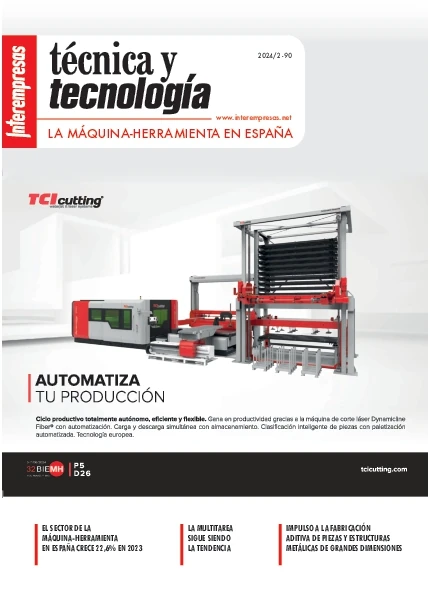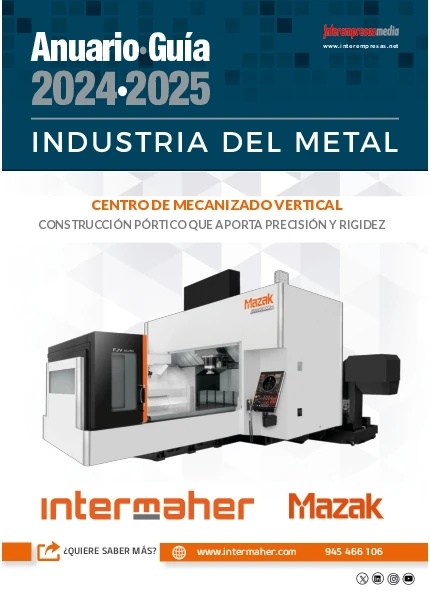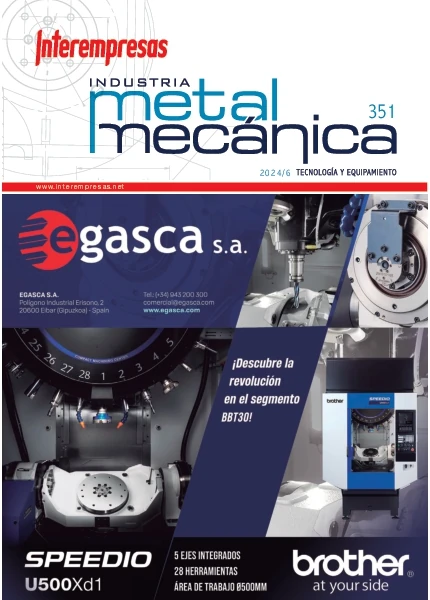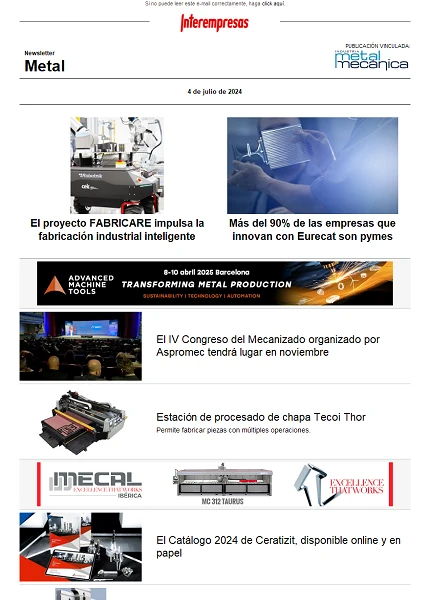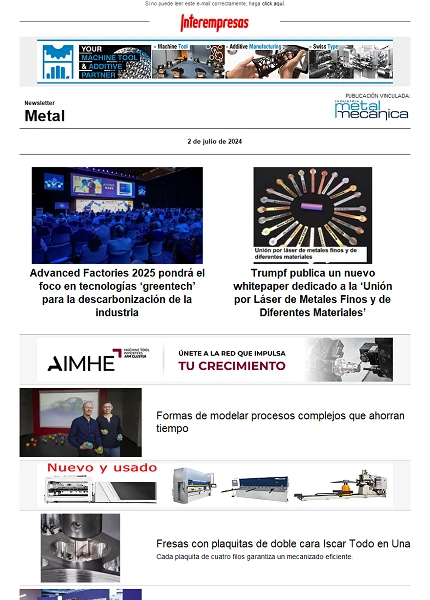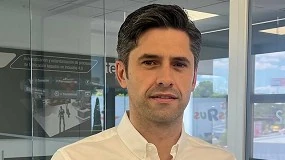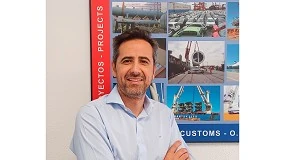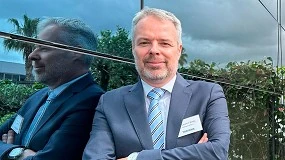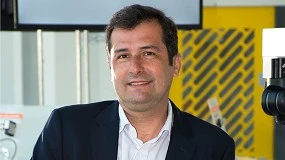Catalonia promotes research in chemistry with the ICIQ
Promote a qualitative change in the scientific level of chemistry research in Catalonia, with progressively more emphasis on research oriented goals, and strengthen, through innovation and technological improvement, the competitiveness of the chemical and pharmaceutical industry of this autonomous region; These are the main objectives that opened, little more than a year ago, the ICIQ, Catalan Institute for chemical research, a university research centre attached to the University Rovira i Virgili.
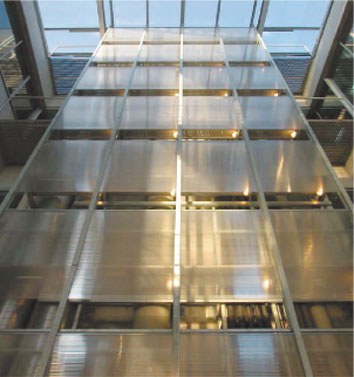
While in the past twenty years has been progress with respect to the amount of resources devoted to r & d, Spain is still in a very weak position in relation to the European average. The "Institut Català d 'Investigació Química" (ICIQ); (Catalan Institute of chemistry research) has been one of the first fruits of the new scientific policy of the Generalitat de Catalunya, geared towards the creation of new centres of technological innovation in strategic areas.
The ICIQ, in particular, created with the ambition of becoming reference for chemistry within the European research area. In strategic terms, the Mission of the ICIQ focuses on the achievement of improved cualitatitiva in the level of chemistry research in its area of influence, evolved from research solely motivated by curiosity towards goals-oriented research. Is intended to contribute to overcome one of the main limitations of the European system of science/technology: a large volume of research results, potentially useful for the solution of industrial problems are simply published, without paying attention to the protection of their intellectual property andTherefore, their potential transfer. In the ICIQ, interest in the solution of relevant scientific and technical problems and the practice of the intellectual protection of the results of the research relevant to the second aspect of the Institute's mission: contribute to the increase in the competitiveness of the industry, chemistry and pharmaceutical Catalan through an active policy of technology transfer.
On the other hand, ICIQ places emphasis on the aspects of the sustainable development of our society, designing products with high added value and eco-efficient chemicals that restore confidence in new technologies.
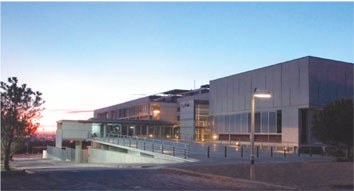
Organization
The main reason that drove the creation of the ICIQ, and its location in Tarragona is the fact that the Spanish chemical industry is mainly concentrated in Catalonia, where it generates nearly half of the production (47.3 per cent). Tarragona, where one of the main chemical poles of the Mediterranean, builds up a quarter of the total production. On the other hand, exist in Catalonia until six universities that grant degrees in chemistry and chemical engineering and who are at the national level, among the first in scientific production in these areas. In any case, Catalonia does not escape the imbalance mentioned earlier between scientific production and transfer of knowledge to the industry.
An innovative research centre
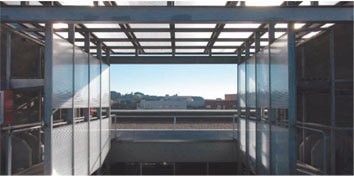
This initiative, unique in Spain, is a springboard for the promotion of young researchers of excellence in their years of maximum scientific productivity, providing the means for the establishment of independent research programmes.
The direction of the Center is provided by the Professor Miquel a. Pericàs, which in turn is an integral part of the research team. Dr. Ignacio Manzanares, which has extensive experience of management of the research in the pharmaceutical industry, is responsible for the management of the Centre.
Several features differentiate the ICIQ from other centres of research. In addition to the excellence of the research team and equipment at the level of the of the best European centres, the Institute for r & d cooperative and has a solid structure internal support to research that facilitates creativity in research and the transfer of results to the industry. In this sense, ICIQ seeks to escape from this widespread practice in the University community, where one thinks before posting that in patenting.
Areas of research
- Department of safety, quality and environment
- Area of support to the research divided into five units:
- X-ray
- Nuclear magnetic resonance
- Mass spectrometry
- General Instrumentation
- Synthesis in parallel/chemical processes.
The support area also includes a strategic area and a Department of technology transfer and Industrial property, which plays a primary role for the achievement of the objectives of the Centre. While the strategic area manages and catalyzes the submission of applications for grants to various calls for research projects. The area of transfer of technology promotes active collaboration with industry on the one hand and, on the other hand, detects opportunities for industrial protection of results generated in the Center, essential for the subsequent transfer of the exploitation rights to an undertaking concerned.
The organizational structure of the ICIQ enables rapid response to the needs of the industry. In addition, the Institute is characterized by flexibility in their approach and structure, allowing to address quickly new initiatives and research projects. Despite his youth, the ICIQ has already achieved to launch several contracts of research with the private sector. In addition, the first applications of visible fruit of ICIQ research will be presented shortly.
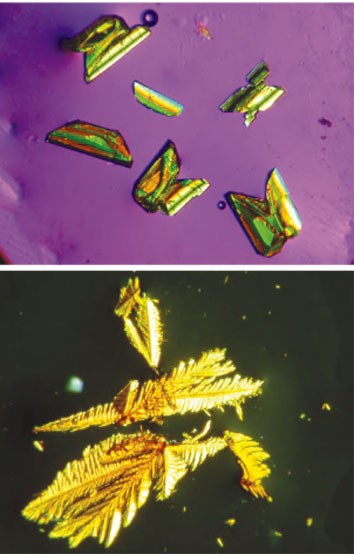
Transfer of technology
On the other hand, the ICIQ is sensitive to the research needs of the industrial sector in its environment. Received a demand for research and a research team for the solution of the problem identified, is drawn up a research contract which establishes all of the terms of the research carried out and regulates aspects relating to industrial property rights generated by this type of research contracts.
The ICIQ oriented his research towards relevant chemical problems from the scientific and industrial point of view. The combined use of experimental and theoretical methods with a multidisciplinary approach are the main guarantees of success of their projects, given that the major scientific advances often come from the border between disciplines. In addition, the use of parallel and combinatorial, methods that enable more rapid progress in the research and strictly control the parameters of reaction, to facilitate the transfer of technology to the industry.
One of the main platforms in which the ICIQ research focuses is the catalysis of chemical processes and their contribution to the establishment of a sustainable chemistry. More than 80 percent of the processes of chemical industry (including pharmaceuticals), an approximate value of 1,500 billion euro, dependent on the catalytic technologies. Catalytic processes in general require a lower capital and lower operating costs and are sustainable excellence processes, based on recycling, decrease the generation of waste, are products of high purity and reduce the impact to the environment. ICIQ provides both homogeneous Catalysis and heterogeneous Catalysis and part of the rational design of catalysts. One of the lines ICIQ placed at the service of companies is the modular design of catalysts for asymmetric catalysis, a strategy based on the "know-how" of our researchers and allows designing catalytic converters to measure for each process and substrate ""avoiding the use of proprietary catalyst and the corresponding payment of royalties derived from the same.
Within the framework of catalysis, ICIQ works also in the development of new synthetic strategies to activate links normal and carbon-carbon, previously considered inert, so opening the range of materials of heading and synthetic possibilities available to chemists. In this sense, one of the remarkable capabilities of the ICIQ is the design of synthetic routes to obtain with success virtually any molecule aim, in particular natural products of complex structure.
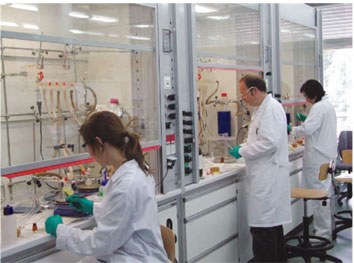
In the field of supramolecular chemistry, ICIQ has several lines of research of great interest to the business environment: the design of sensors and you probes specific able to detect any kind of molecule target (especially those molecules with biological importance)(, clinical or environmental); objective design of inhibitors or stabilizers of molecules with importance for the health or the design of vectors for the transport of drugs through cell membranes. For example, it has been designed and recently patented a specific sensor for the detection of minute amounts of mercury and is underway in the stabilization of the protein p53 as a strategy against cancer.
In addition to collaboration in r & d projects, the ICIQ is launching a laboratory, only in Spain, for the systematic investigation of the phenomenon of the crystalline polymorphism. The ability of a substance to take different crystalline forms is not only therapeutic implications, but also in the field of industrial property. The long experience of those responsible for the laboratory in the resolution of industrial problems arising in the polymorphism has aroused an unusual interest among químico-farmacéuticas companies in the environment of the Institute.
At the time of concluding this description of the Institut Català d'Investigació chemical, it is worth noting his position for the future. The ICIQ works in some of the most important chemical challenges of this century and hopes to be able to contribute with their efforts to strengthen the technological base of the Spanish business network.


